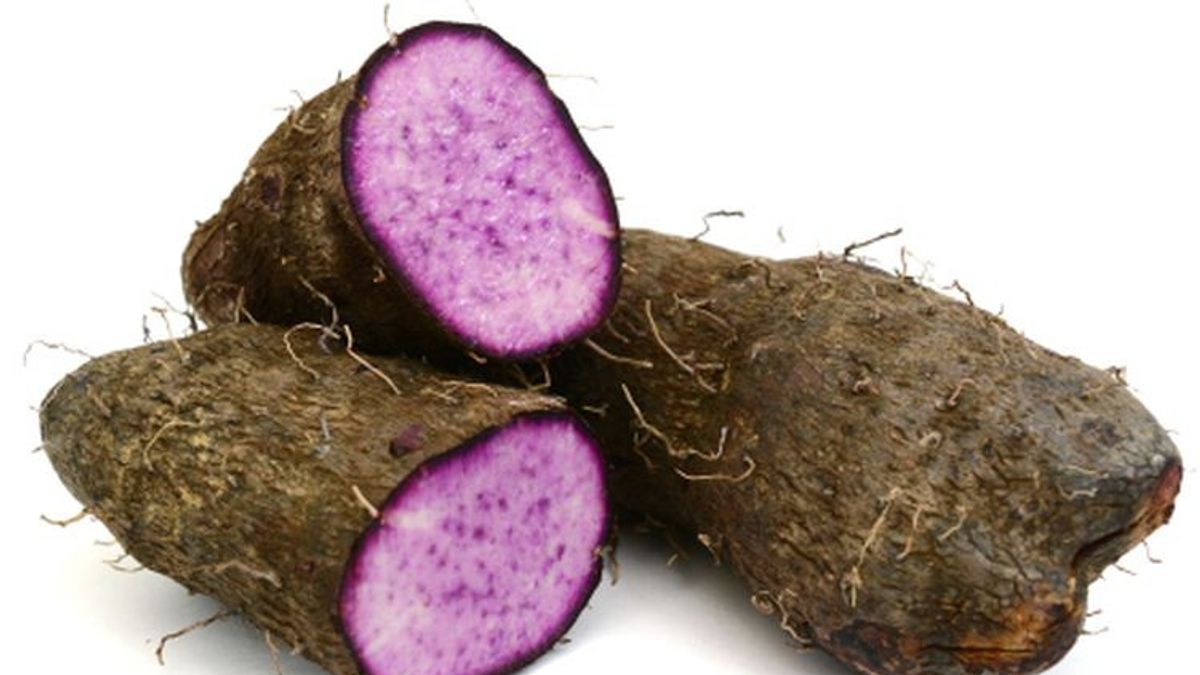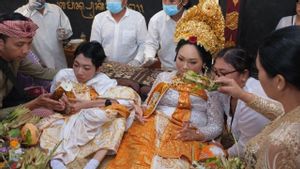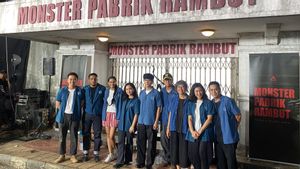JAKARTA - The National Research and Innovation Agency (BRIN) documents the traditional knowledge of the community regarding the conservation and cultivation of local uwi varieties carried out by the community in Tuban, East Java.
Researcher of the Intermediate Research Center for Applied Botani BRIN Lia Hapsari in a statement quoted in Jakarta Monday said, there are many local uwi varieties that have socio-economic and cultural interests.
"At least there are seven local uwi varieties that are known and cultivated by the Tuban community, namely uwi baklit, uwi putih, uwi legi, uwi purple, uwi sego, uwi klelet, and uwi randu," he said, quoted by Antara.
The seven local uwi varieties show the diversity of high morphological characteristics. Descriptors that are important for distinguishing between-manifolds are the character of tubers, especially in shape and size, color of meat and skin, as well as texture.
Lia said, the names of varieties given by the Tuban community mostly also reflect the characteristics of these morphologies, such as the color of the umbi skin and the color of the tuber meat or other characteristics of perception, such as the taste of meat and utilization.
Farmers have planned agricultural production by adopting traditional knowledge for generations that refers to information, wisdom, traditions, and practices that have long existed in certain indigenous peoples or local communities, and are mostly practical.
Traditional knowledge of conservation and agricultural practice is largely owned by old farmers and passed down from generation to generation. The legacy of traditional knowledge is renewed by each generation according to the times.
This is done in order to maintain the quality of agricultural products and environmental conservation and deplete the risk of natural disasters and so that traditional knowledge can be maintained and can be used by following changes in the times.
In recent years, the documentation of traditional knowledge in agriculture has received great attention worldwide as it plays an important role in the development of agricultural system practices and sustainable environmental potential management.
Researcher for Young Experts at the Center for Ecology and Ethnobiology Research, BRIN Fauziah, revealed that the variety most cultivated by farmers in Tuban is uwi which has a high selling value in the market and is preferred for consumption.
"Most of the farmers in Tuban cultivate uwi legi and uwi putih because it tastes more delicious to ferries and is highly cultivated, and sells well in the market. Meanwhile, purple uwi is considered the least attractive to be cultivated because of its lack of sweet taste," said Fauziah.
SEE ALSO:
The selection of commercial-valued varieties as the most prioritized varieties to culture can lead to the loss of locally uwi varieties that are considered commercial-valued, thereby increasing the urgency of the conservation efforts of all uwi local varieties, both in-situ,on-farm, andex-situ.
BRIN hopes that the documentation of traditional knowledge in agriculture can contribute to the preservation of biodiversity and a sustainable cultivation pattern and maintained traditional knowledge in agriculture to be passed down from generation to generation.
The results of the study can also serve as a framework for decision making at the local and national levels for conservation efforts and sustainable cultivation management and uwi utilization practices.
Publikasi ilmiah tentang pendokumentasian budidaya uwi tersebut berjudulTraditional Knowledge in Conservation And Farming Practice of Water Yam (Dioscorea Alata L): Lesson Learned From East Javanese Communityyang dapat diakses pada https://ijcs.ro/volume-14-2023/#Issue4.
Currently, there are three types of farming business systems to cultivate local uwi varieties that are carried out for generations by farmers, namely cultivation in the yard of the house, absorption overlap, and agrophorestry. Alternative food plants are easy to adapt to dry land and low fertility soil.
The English, Chinese, Japanese, Arabic, and French versions are automatically generated by the AI. So there may still be inaccuracies in translating, please always see Indonesian as our main language. (system supported by DigitalSiber.id)
















